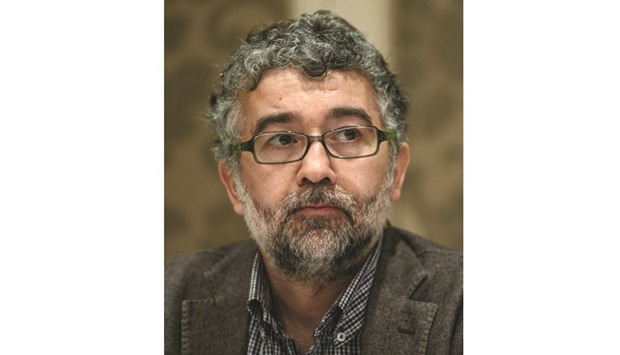The Turkey representative for international rights group Reporters Without Borders (RSF) was arrested yesterday on “terrorist propaganda” charges, in the latest crackdown on the media in the country.
Erol Onderoglu was charged, along with journalist Ahmet Nesin and rights activist Sebnem Korur Financi, for taking part in a campaign of solidarity with the pro-Kurdish press in Turkey in May, media reports said.
RSF swiftly condemned the detention of the three in a post on Twitter.
“Unbelievable low for press freedom in Turkey. Free Erol!” said the tweet from the Paris-based organisation’s eastern Europe and central Asia desk.
The arrests come despite the European Union pressuring Ankara to narrow its definition of terror to stop prosecuting academics and journalists for publishing “terror propaganda”.
The three had in May taken symbolic control of pro-Kurd newspaper Ozgur Gundem, which has been in the crosshairs of the Turkish authorities for years, sparking a judicial enquiry against them.
The paper, seen by the authorities as close to outlawed Kurdish rebel group the Kurdistan Workers’ Party (PKK), has often been closed down, according to media reports.
“The prosecutor who heard us demanded that we be charged for terrorist propaganda,” Onderoglu told AFP just before the charges were laid.
The international community has voiced increasing alarm about the erosion of press freedoms in Turkey under Erdogan’s rule. RSF ranks Turkey 149th out of 180 countries in its latest World Press Freedom Index.
Ankara has also taken a hard line against Kurds after almost a year of renewed violence against the Turkish state by outlawed rebels that shattered a two-and-a-half year truce.
Last month, parliament adopted a highly controversial bill that would lift immunity for dozens of pro-Kurdish and other MPs and could see them evicted from parliament.
The EU has called for changes to the country’s terrorism law if it is to meet the conditions of a migrant deal that promises visa-free access for Turks, increased aid and speeded up accession talks.
But President Recep Tayyip Erdogan has repeatedly made clear that Turkish authorities see “no difference” between individuals carrying weapons or indulging in “terrorist” propaganda.
Turkish armed forces have been waging a bloody campaign against the militants in the mainly Kurdish southeast of the country.
The Kurdistan Freedom Falcons (TAK) — seen as a splinter group of the PKK — has waged several attacks in Ankara and Istanbul in what it said was revenge for the army offensive.
Over 40,000 people have been killed since the PKK took up arms in 1984 demanding an independent state for Kurds.
Since then the group has narrowed its demands to greater autonomy and cultural rights.

Onderoglu ... in the dock
